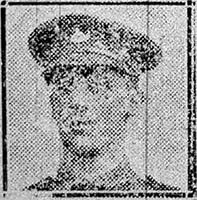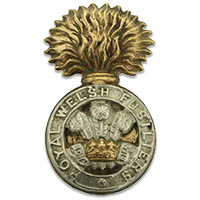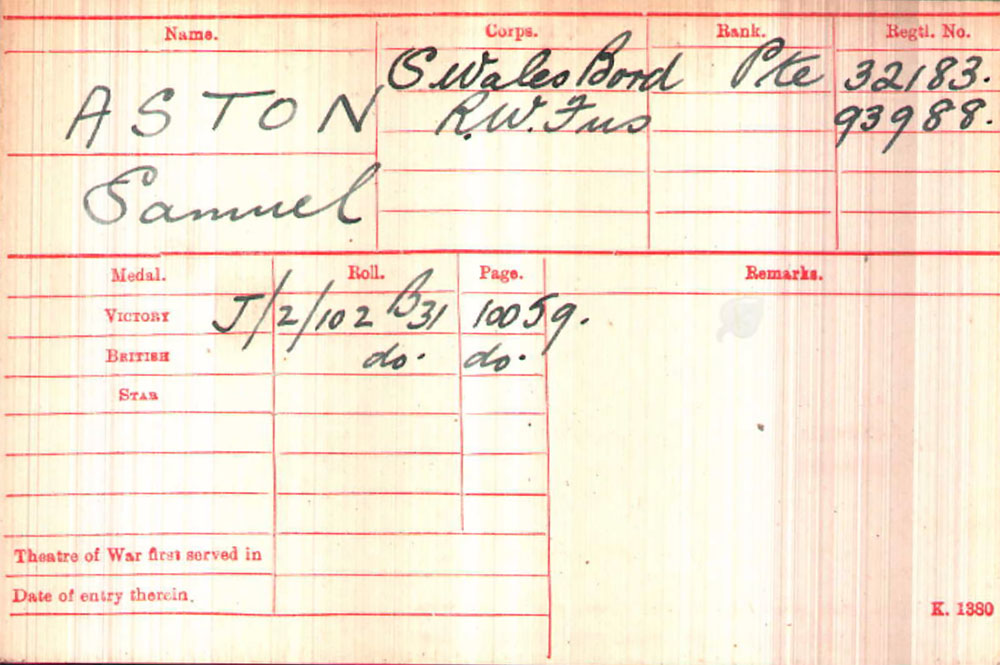| Unit/Regiment | Royal Welsh Fusiliers |
| Battalion | 16th |
| Rank | Private |
| Service Number | 93988 |
| Theatre of War first served in | |
| Date of entry therein | |
| Age at Death | |
| Date of Death | 08/10/1918 |
| Burial/Memorial | Bois-Des-Anglais British Cemetery |
| CWGC Family Details | |
| Born | Birmingham |
| Enlisted | Newport, Mon. |
| Resided | |
| How Died | Killed in action |
| Theatre of War | Western European Theatre |
| Medal Entitlement | |
| Notes | Formerly 32183, South Wales Borderers. |
Samuel Aston's Story
Family
Samuel Aston was born in Smethwick Birmingham in 1895 to Thomas and Emma Aston (nee Griffiths) and was living in New Street Smethwick in 1901, he was one of eleven children. His father was a woodworker. Samuel is found in Newport in 1911 living at 13 Ifton Street with his parents and was working as a labourer in the Nail Works with his brother Thomas Edward.
In December 1917 he married Elizabeth Hancox of 80 Magor Street in St Johns Church Maindee whilst living at 450 Corporation Road, but they didn’t have any children.
Military
Samuel enlisted in the South Wales Borders on the 10th December 1915 and was posted to the reserves until April 1918, he was then attached to the 3rd Battalion of the South Wales Borders in Brecon and posted on 25 August 1918 to join the British Expeditionary Force at Rouen in France where he was transferred to the 16th Brigade of the Royal Welsh Fusiliers in September 1918.
Samuel was Killed in Action on the 8th October 1918 during an attack at Motho Wood, the regimental diary says that 32 soldiers were killed in the attack, 114 Wounded and 4 missing in the few hours of the attack, Samuel was originally buried at Motho Wood British Cemetery but was transferred to the Commonwealth War Graves site at Bois-Des-Angles British Cemetery, Crevecoeur-Sur-L'Escaut.
Samuel was entitled to the British War & Victory Medals and his widow, Martha, received back pay of £5 5s 8d which included £5 war gratuity from the War Office and a pension of 13s 9d per week.
Steel Remembered would like to thank Peter Smith for researching Samuel Aston's story.







